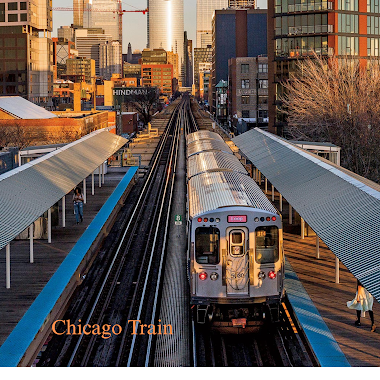Scenario-based article exploring different outcomes.
When a commuter train dispute hits the headlines, most Chicagoans glance past it, assuming the trains will keep running no matter what. But what if they don’t—at least not the way they do now?
The battle between Union Pacific and Metra isn’t just a bureaucratic turf war over steel rails. It's a high-stakes chess match that could reshape the daily grind for tens of thousands of commuters across Chicagoland. Metra, the region’s lifeline for suburban rail, is fighting for continued access to tracks owned by Union Pacific—a freight railroad giant that has made clear it wants to stop operating Metra’s commuter trains. If federal regulators side with Union Pacific and dismiss Metra’s request for formal trackage rights, the fallout could ripple through the city and beyond.
So, what might happen next?
In "Five Alternative Futures: If Metra Loses, What Next for Chicago Transit?", we explore five entirely different—and equally plausible—paths the city could take if Metra’s bid is denied. Each scenario dives into the real-world consequences, trade-offs, and ripple effects on riders, infrastructure, policy, and the political climate.
Future 1: The “Farewell UP” Split
Metra parts ways with Union Pacific altogether. Without access to UP-owned tracks, the agency must reroute or cancel several key lines, like the UP North and West lines. In this future, expect packed platforms, longer commutes, and an urgent scramble for bus or CTA expansions.
Future 2: Public Takes the Wheel
The Illinois state government steps in and buys the tracks from Union Pacific, taking ownership and control of a large portion of Chicagoland’s commuter rail infrastructure. This future comes with an enormous price tag—but also the possibility of modernizing service and decoupling from freight conflicts once and for all.
Future 3: Private Rail Renaissance
A wildcard option: Union Pacific agrees to lease trackage to a third-party operator who runs Metra’s trains under contract. Imagine a hybrid model—like Brightline in Florida—emerging in Chicago. Could privatized commuter rail improve service, or would it lead to higher fares and corporate control?
Future 4: Political Tug-of-War
Metra loses in court, but gains in politics. Public outcry and election-year pressure prompt Congress to step in, legislating a solution that forces cooperation between UP and Metra. This future would set a national precedent for shared infrastructure between freight and commuter rail.
Future 5: The Transit Tumble
The worst-case scenario: No deal is reached, no fallback is in place, and service is cut. Riders abandon Metra en masse. Downtown loses workforce access. Traffic and emissions rise. In this grim future, Chicago’s already fragile transit ecosystem starts to unravel.
This article doesn’t just speculate—it interviews transportation experts, riders, city planners, and politicians to paint a vivid, deeply human portrait of what each future might feel like. It includes infographics showing route disruptions, budget implications, and who stands to win or lose.
Whether you’re a daily commuter, a policy wonk, or just someone who loves Chicago, this isn’t just about trains—it’s about who decides how a city moves.
Because when Metra goes to war with a freight giant, the real battleground isn’t the rail yard—it’s the future of Chicago itself.




No comments:
Post a Comment